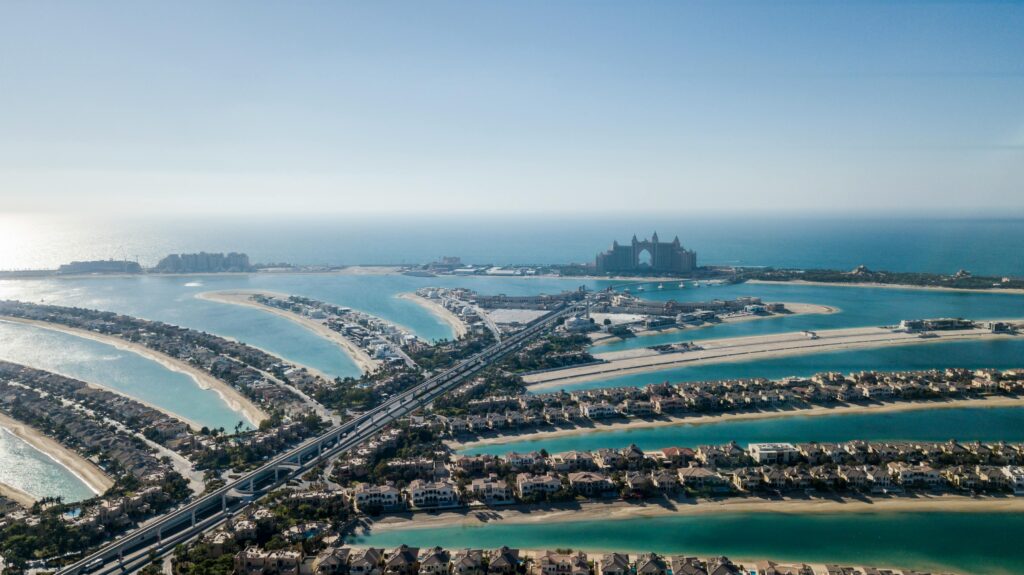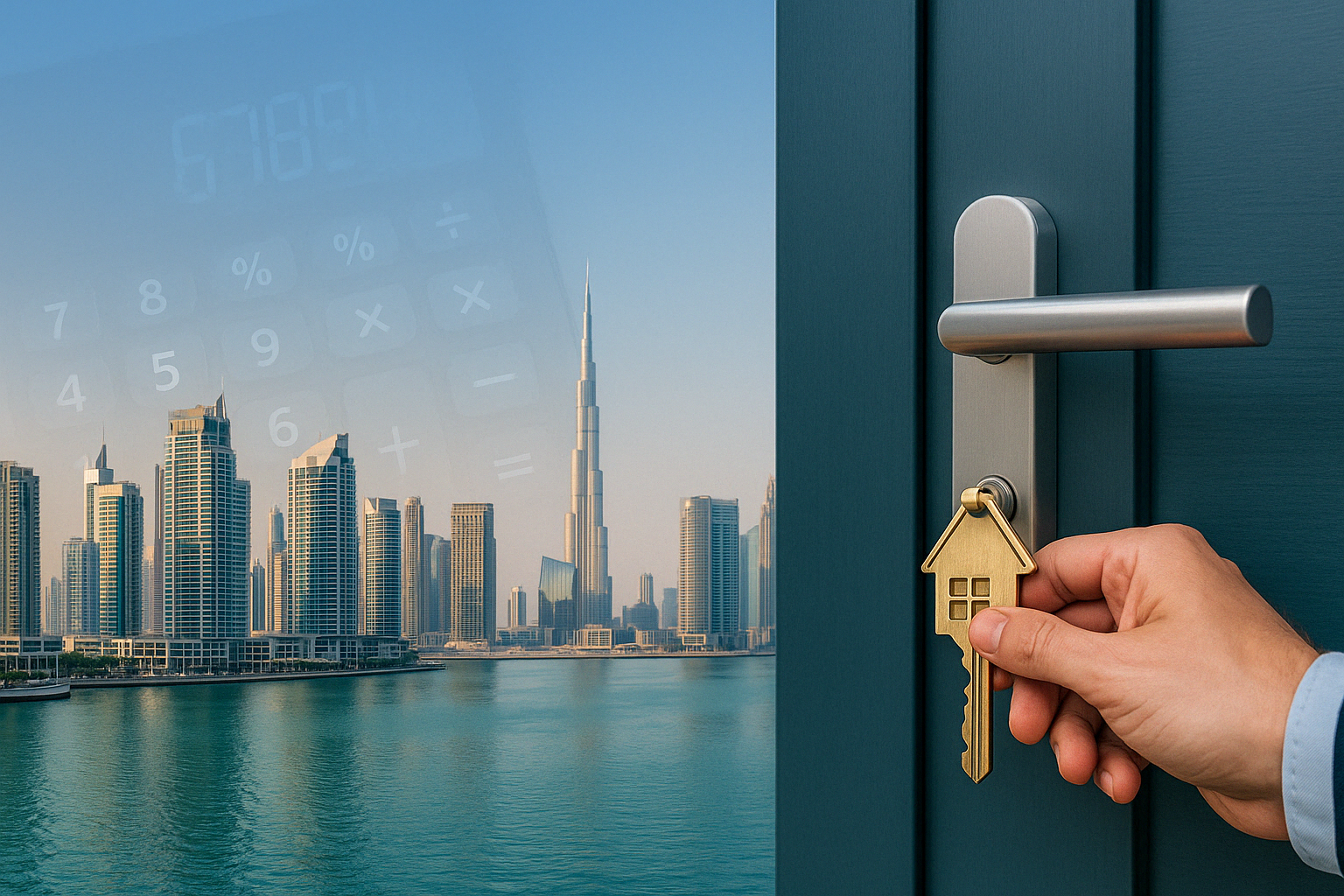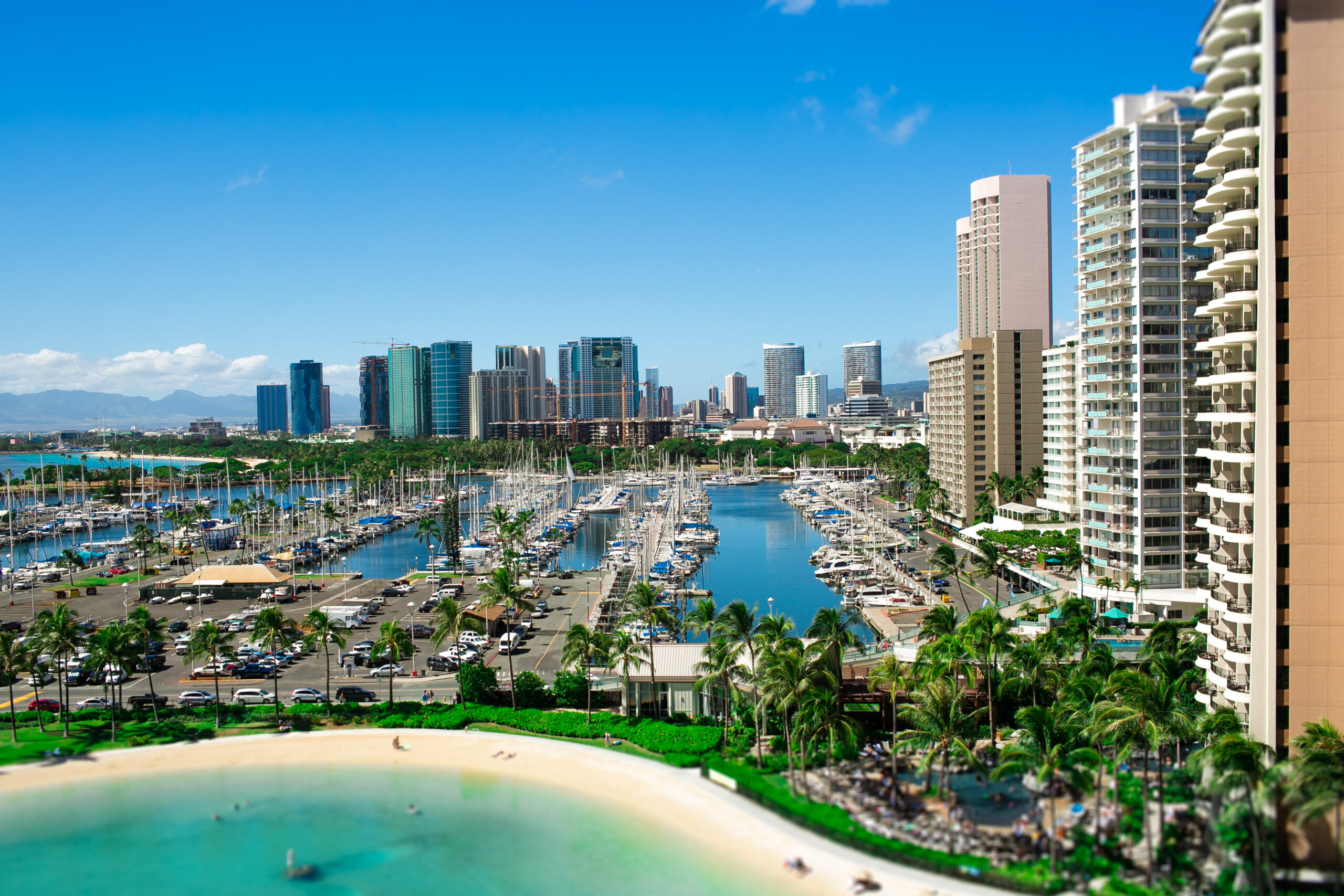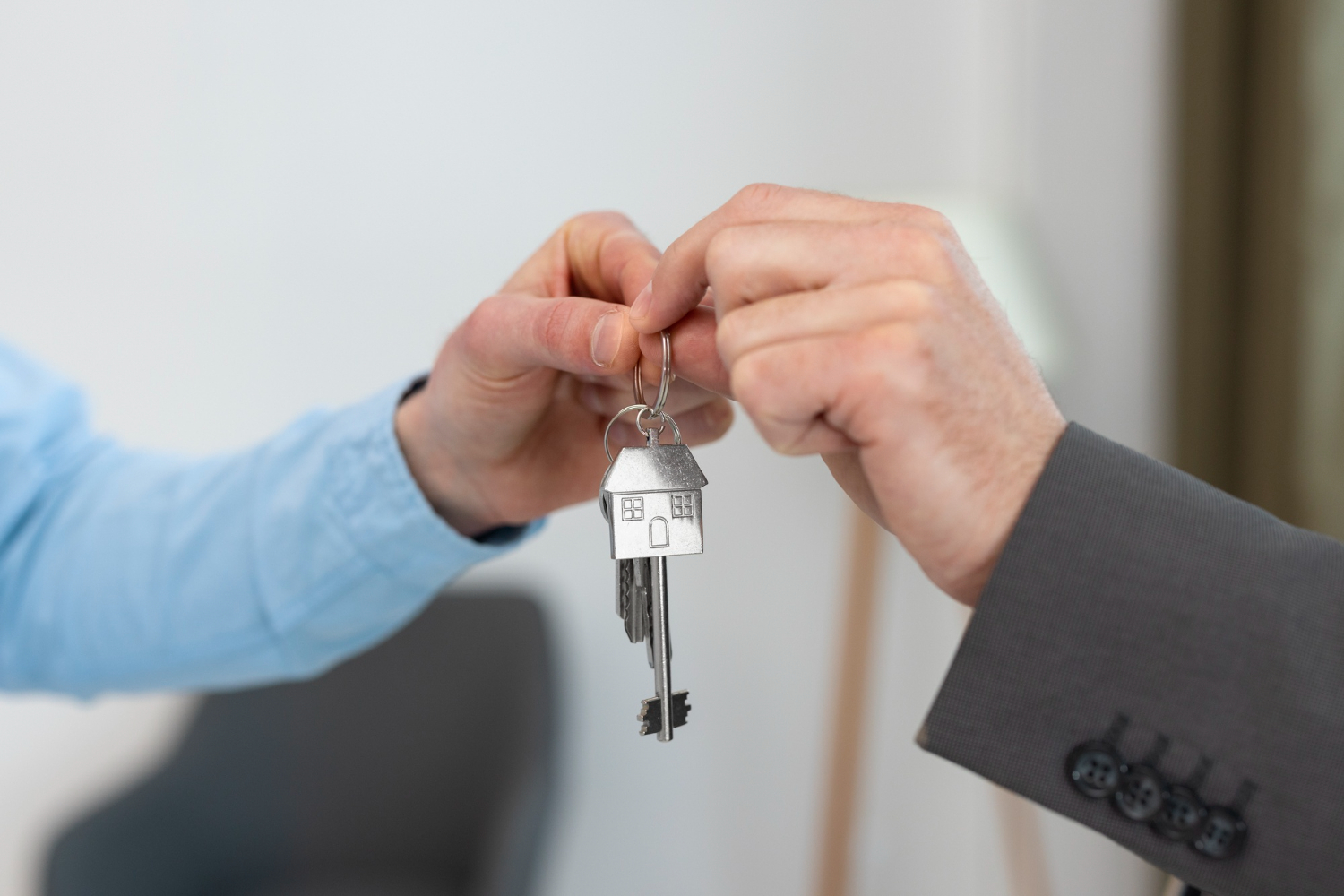Typically, you get to pick two of these three with real estate investments: high returns, tax advantages and stability. Dubai has all three.
In 2024, the city recorded over 226,000 real estate transactions, reflecting a 36% year-on-year increase.
Luxury properties in hotspots like Palm Jumeirah and Downtown Dubai have been on a major tear, with prices jumping as much as 31% in some cases. That’s a huge win if you’re looking to cash in quickly, but it also means the competition is heating up.
For investors, that could signal an opportunity to grab something now before prices go even higher and we’ve compiled a deep dive to help you position yourself to make the most of these opportunities.
Why Invest in Dubai Real Estate?

1. High return on investment and capital appreciation
Dubai’s real estate market is one of the most dynamic in the world, with an impressive average appreciation of 5–10% each year and surging by 19.46% in 2024 alone.
“What you’re seeing now is not an increase in property value; it’s a rectification of prices and the real estate value. From here onwards, I don’t see any way back to the old prices of 2014–15. That’s impossible.” says Dr. Mohammed Baydoun, Senior Vice President of Development at DAMAC in an interview.
This momentum is reflected in recent data from Q1 2024, according to Knight Frank:
Villas, now 19.3% above their 2014 peak at AED 1,745 per square foot, have outperformed other segments thanks to rising demand for luxurious suburban living;
Apartments have climbed 10% to AED 1,560 per square foot but still sit 1.8% below their previous highs, an enticing window for investors seeking further growth.
The luxury sector has soared by 18.2% to AED 3,754 per square foot, underscoring Dubai’s global appeal for premium properties.
Projections point to annual increases of 5–8% through 2025.
2. Tax-free property ownership benefits
Another reason to invest in Dubai? Taxes, or rather, the lack of them. Dubai offers a tax-free environment for property owners, with no capital gains tax, income tax, or property tax. For foreigners, this means you can enjoy rental income without paying a cent in tax.
For perspective, other global markets like the US charge investors a capital gains tax that can go up to 20%, depending on the sale price and their income. Plus, rental income is subject to the regular income tax rate, which can climb as high as 37%.
3. Growing economy and demand for real estate
In 2023 alone, around 4,500 high-net-worth individuals (HNWIs) moved to the UAE, attracted by tax-free living, a stable economy, and new visa options.
Dubai has also seen an increase in wealth managers and family offices from places like China, Hong Kong, and Singapore, setting up operations in the city.
Not forgetting the ambitious plan laid out by the UAE government to double the population of Dubai by 2040, aiming to reach over 7 million people from its current population of approx 3.6 million.
This means the demand for housing, across all property types, will continue to rise. Residential areas like JVC (Jumeirah Village Circle) already offer a glimpse into the future, with properties appreciating as the city expands outwards.
4. Freehold property ownership opportunities for expatriates
Thanks to Law No. 7 of 2006, which allows foreigners to buy land and property in specific areas known as “freehold zones,” expatriates now have the chance to own property in some of Dubai’s most sought-after locations such as Downtown Dubai, Dubai Marina, and Palm Jumeirah, to name just a few.
Before this law, foreigners could only lease property, but now you can purchase residential, commercial, and even mixed-use properties without needing a local partner.
How to Invest in Dubai Real Estate

1. Understand the Market
Dubai’s real estate market is in a growth phase, thanks in large part to off-plan developments. Currently, over 261,000 residential units are under construction, with 80% of these being apartments scheduled for completion by 2029. This pipeline has led to a 21.4% increase in housing supply as of Q1 2024, indicating that new construction will continue shaping the city’s real estate landscape in the coming years.
And even though property scarcity has pushed prices up by 7%, Dubai is still one of the more affordable global cities for luxury real estate. According to Knight Frank’s 2024 Wealth Report, $1 million buys around 980 sq. ft. of prime space in Dubai, far more than 366 sq. ft. in New York, 355 sq. ft. in London, and just 172 sq. ft. in Monaco.
2. Understand Legal Requirements
You’ll typically need a valid passport, proof of income, and any additional documents required by the Dubai Land Department when you register. Because the legal framework can be complex, it’s wise to consult a specialized real estate lawyer early in the process.
Reputable firms like Al Tamimi & Company, Hadef & Partners, Clyde & Co, and TWS Legal Consultants regularly assist international buyers. They ensure your contracts comply with local laws and help prevent unforeseen issues.
3. Exploring Financing Options
If you have the funds, paying from personal savings is the simplest route.
However, many buyers turn to local mortgages, which allow you to borrow up to 80-85% of the property’s value as a resident, often with interest rates around 4-5%.
Non-residents can get up to 60% for properties under AED 5M (around 50% if above AED 5M).Interest rates tend to be higher (in the 6–7% range).
If you’re purchasing an off plan property, you’ll benefit from flexible, interest-free payment plans that span several years.
Alternatively, equity release allows you to tap into the value of a property you already own to fund renovations or new purchases.
4. Understand Rental Yields and ROI
Most residential units offer yields between 5–9%, but the exact figure varies by neighborhood, property type, and demand.
In locations such as Dubai Marina or Downtown Dubai, apartments often yield the higher end of that range due to premium rents and strong tenant appeal. Don’t forget to factor in expenses such as maintenance fees, annual service charges, and mortgage payments if you’re financing.
You’ll want your rent to comfortably cover these outlays so you can maintain steady cash flow and protect your returns.
5. Use Mena Homes’ Verified Listings to Find Your Perfect Investment Property
Your Dubai property investment goals should shape every step of your property search, and Mena Homes is here to help you zero in on the right options. Our platform lets you quickly filter listings by location, budget, and property type, so you can focus on real estate opportunities that genuinely match your needs.
If you’re aiming for high rental yields, for example, you might start by exploring Dubai Marina, or Palm Jumeirah and Emirates Hill if long-term capital appreciation is your priority.
Mena Homes connects you with trusted, RERA-registered agents who understand the local market and can help you navigate everything from property selection to closing the deal. You’ll also benefit from verified listings, so you can be confident you’re seeing accurate information on each potential investment.
6. Mitigate Risks
Even a fast-growing market like Dubai can experience ups and downs, so it’s wise to spread your investments across different areas or property types, such as mixing villas, apartments, and commercial spaces. Keep track of broader economic trends and regulatory changes that might affect prices or rental demand.
If you rely on rental income to service a mortgage, maintain an emergency fund that covers at least three to six months of payments. This cushion will help you weather any short-term vacancies or shifts in market conditions without defaulting on your loan or compromising your investment.
7. Plan Your Exit Strategy
Before you finalize a purchase, decide how long you plan to hold the property. If you foresee reselling, know the Dubai Land Department fees (typically 4% of the sale price, often paid by the buyer) and any brokerage costs (commonly 2%).
If you prefer to exit by transferring ownership (e.g., to family or within a business partnership), consult a lawyer early to clarify the legal steps.
Best Areas to Invest in Dubai Real Estate

Luxury Investments
Dubai has several exclusive locations with strong capital appreciation and world-class amenities for high-end investors.
1. Jumeirah Bay Island (“Billionaire’s Island”)
Average Price per Sq. Ft.: AED 5,640
Villa Price Range: Ultra-luxury beachfront mansions
Why Invest? Limited supply, direct sea views, and exclusive lifestyle with top-tier amenities.
2. Palm Jumeirah
Average Price per Sq. Ft.: AED 4,000 (Villas), AED 4,900 (New Apartments)
Average Villa Price: AED 32 million
Why Invest? Dubai’s most iconic artificial island with premium beachfront properties and high rental demand.
3. Bulgari Residences, Jumeirah Bay
Average Price per Sq. Ft.: AED 10,000+
Why Invest? Ultra-luxury branded residences with strong appreciation potential and exclusive amenities.
4. Atlantis The Royal, Palm Jumeirah
Average Price per Sq. Ft.: AED 9,000
Why Invest? Prestigious hospitality-branded residences with high-end services and beachfront luxury.
Affordable Investment Areas
For investors looking for high rental yield and long-term appreciation at lower entry prices, these areas offer great opportunities.
1. Jumeirah Village Circle (JVC)
Average Price per Sq. Ft.: AED 1,300 (Apartments), AED 1,400 (Townhouses)
Average Apartment Price: AED 900,000
Why Invest? High rental demand, 7%+ rental yield, and strong expat community.
2. Dubai Silicon Oasis
Average Price per Sq. Ft.: AED 800
Why Invest? Affordable housing, upcoming metro connectivity, and strong rental market.
3. Dubai Sports City
Average Price per Sq. Ft.: AED 800 (Ready Apartments), AED 1,500 (New Developments)
Why Invest? Affordable homes with strong community infrastructure.
4. International City (Phase 1 & 2)
Average Price per Sq. Ft.: AED 500 (Phase 1), AED 800 (Phase 2)
Average Apartment Price: AED 350,000
Why Invest? One of Dubai’s lowest-cost investments, ideal for entry-level investors.
Start Your Real Estate Investment in Dubai Today

Throughout this guide, we’ve explained how to invest in Dubai real estate by looking at why Dubai’s property market is such a hot prospect, walked you through how to begin your investment journey and highlighted the best neighborhoods based on your budget and goals. Now is the time to put that knowledge to work.
With Mena Homes, you’ll discover a trusted partner that connects you to verified listings and seasoned agents that understand the local market.
Ready to take the next step?
Explore the latest investment opportunities in Dubai right now on Mena Homes and begin your journey toward profitable, hassle-free real estate ownership in one of the world’s most dynamic cities.









